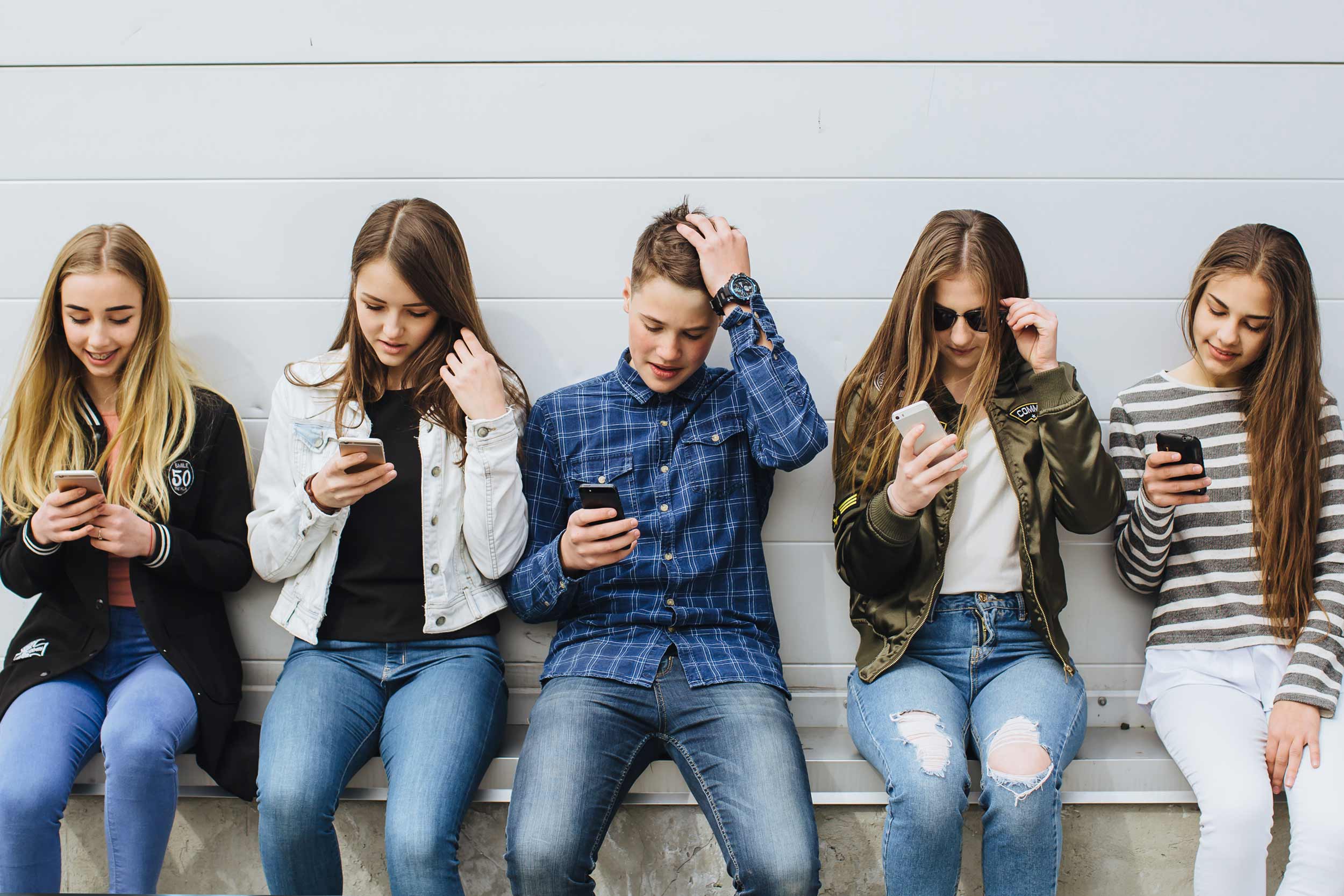Overseas school trips offer students unique opportunities for cultural immersion, learning, and personal growth. While digital devices can enhance these experiences, there are compelling reasons to consider implementing a digital detox during these excursions. Let’s delve into the well-being benefits of a digital detox for students on their overseas school trips.

When students put away their digital devices, they become more fully engaged in the local culture, traditions, and language. This immersive experience can lead to a deeper understanding and appreciation of the destination, fostering cultural sensitivity.
A digital detox encourages students to interact more with their peers and local residents, promoting social skills and meaningful relationships. Face-to-face communication fosters a sense of connection and empathy.
Students often experience the fear of missing out (FOMO) on social media during their overseas trips. A digital detox can alleviate this anxiety, allowing them to focus on the present and fully enjoy the experiences they are having.
School trips are primarily educational in nature, and a digital detox helps students concentrate on the intended learning objectives. Without constant distractions, they can engage more deeply in the educational aspects of the trip.
Disconnecting from the digital world can significantly reduce stress levels. Students can take a break from the pressures of online notifications, likes, and comments and, instead, immerse themselves in the natural beauty and cultural richness of the destination.
A digital detox on a school trip can have positive effects on students’ mental health. They have the opportunity to step away from the pressures of social media, online comparison, and the virtual world, allowing them to relax and recharge.
Better sleep quality is crucial for students’ overall well-being. A digital detox in the evening can help students get more restful sleep, ensuring they are well-rested and energized for the next day’s activities.
Students can engage in mindfulness practices during their digital detox, allowing them to be fully present and reflective. This promotes self-awareness, appreciation of the moment, and the ability to process and learn from the experiences they encounter.
Excessive screen time can lead to physical issues such as eye strain, neck pain, and poor posture. A digital detox on a school trip can help alleviate these problems, ensuring students’ physical well-being.
School trips often take students to natural or environmentally significant locations. A digital detox encourages them to appreciate the beauty and significance of these places, fostering a sense of environmental responsibility.
A digital detox can provide numerous well-being benefits for students on their overseas school trips. It allows them to fully immerse themselves in the destination, focus on their educational objectives, and build meaningful social connections. Additionally, the break from digital distractions can contribute to reduced stress, improved mental health, and a greater appreciation for the world around them. By incorporating a digital detox into the itinerary, educators and trip organizers can ensure that students make the most of their international educational experiences and return home with enriched well-being and a deeper understanding of the world.
While the benefits of a digital detox during overseas school trips are evident, educators and trip organizers must decide on the most suitable mobile phone policy to balance students’ well-being with their need for connectivity. Here are three possible mobile phone policy options for educators to consider:

This is a strict approach that prohibits students from bringing their mobile phones on an overseas school trip. Under this policy, students are not allowed to have their phones with them during the entire duration of the trip.
Full Immersion: This policy ensures that students fully immerse themselves in the trip’s educational and cultural experiences without digital distractions, enhancing the quality of the learning experience.
Prevention of Misuse: By eliminating students’ access to phones, the policy significantly reduces the potential for phone misuse, such as excessive screen time or inappropriate online activities.
Safety Concerns: Some parents may have concerns about their children’s safety without access to phones in case of emergencies or unexpected situations during the trip.
Adjustment Challenges: It may be challenging for students to adapt to a sudden and complete digital detox, particularly if they are accustomed to relying on their phones for communication and entertainment. This adjustment period could impact their initial comfort and well-being on the trip.
The ‘Complete No Phone Policy’ prioritizes an uninterrupted educational and cultural experience but does raise some concerns for some stakeholders such as some parents, regarding student safety and the potential challenges they may face during the transition. It is important for educators and trip organizers to communicate the policy clearly to both students and parents and to provide alternative means of communication and support in case of emergencies. Alternative options for communication can be achieved with educators working in partnership with their third-party specialist educational travel partner.

Under this policy, students are allowed to bring their mobile phones, but they are subject to strict regulations designed to strike a balance between staying connected and experiencing a digital detox. The key components of this policy may include for example:
Nighttime Phone Collection: Each night, teachers or trip organizers collect students’ mobile phones to ensure that they are not using them in bed or late into the night. This practice helps promote better sleep hygiene by eliminating late-night screen time.
No Phones During Meals: Students are not permitted to use their phones during mealtimes. This encourages face-to-face interaction and fosters a sense of community during meals.
Limited Daytime Usage: Mobile phone usage during the day is restricted and monitored. Students may be allowed short, designated breaks to check their phones or make necessary calls, but this time is limited to avoid digital distractions from the educational objectives of the trip.
Balanced Connectivity: This policy maintains a balance between the need for safety, communication, and responsible phone usage during an overseas school trip.
Improved Sleep: Eliminating late-night phone use contributes to better sleep quality, ensuring students are well-rested for the next day’s activities.
Enhanced Social Interaction: Banning phones during meals and limiting daytime usage encourages students to engage in face-to-face conversations and strengthen relationships.
Possible Resistance: Some students may resist the restrictions and find ways to use their phones during the day.
Perceived Lack of Trust: Students may interpret phone collections as a lack of trust, which could affect morale if not communicated effectively.
The “Regulated Mobile Phone Policy” strikes a balance between the advantages of a digital detox and the need for connectivity during overseas school trips. It promotes a safe and enriching experience by minimizing digital distractions while allowing students to maintain some degree of contact with their families and loved ones. Clear communication of the policy and its benefits is crucial to its success.

The “Self-Regulation Mobile Phone Policy” places the responsibility on students to manage their screen time with minimal supervision during an overseas school trip. Educators provide guidelines for responsible phone usage, but students are entrusted to oversee their own devices.
Encouragement of Independence and Responsibility: This policy promotes independence and responsibility among students as they learn to self-regulate their phone usage, fostering essential life skills.
Preparation for Real-World Scenarios: By allowing students to manage their own devices, the policy prepares them for real-world scenarios where they must make responsible decisions about their screen time.
Potential for Struggles with Self-Regulation: Some students may find it challenging to self-regulate their phone usage, especially when they encounter digital distractions that may interfere with their educational and cultural experiences.
Vigilance required from educators: Educators must be vigilant in enforcing the guidelines to ensure that students’ well-being is not compromised, and the policy remains effective in maintaining a balanced educational and digital experience.
The Self-Regulation Mobile Phone Policy empowers students with the responsibility to manage their phone usage while offering the potential for valuable life skills development. However, it requires a level of self-discipline and vigilance on the part of both students and educators to ensure a positive and balanced outcome during the school trip.
Ultimately, the choice of mobile phone policy should align with any overarching school policy on mobile phones, the objectives of the specific school trip and the students’ age, maturity, and past behaviour.
Educators may also consider a combination of these policies, such as a regulated policy during educational activities and a more relaxed policy during leisure time.
It’s essential to communicate the chosen policy clearly to both students and parents and to monitor its effectiveness throughout the trip to ensure a balance between well-being and the educational goals of the journey.